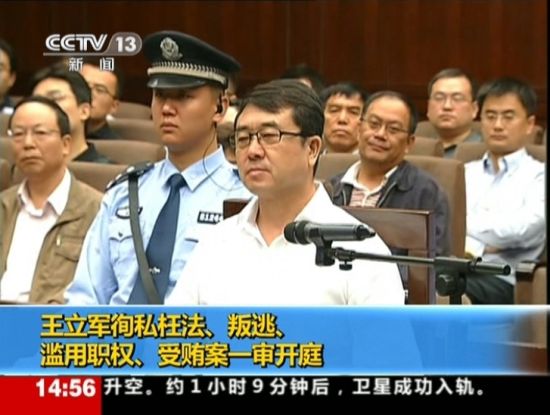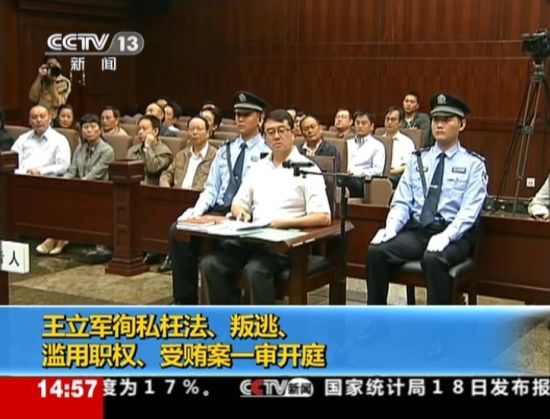现
代社会中,很少还有人类行为能像五千年前中华文明初露曙光时那样有研究价值了。性却是一个例外。一本刚刚出版的新书便是以此为主题,欲解密世界第一人口大国的床笫之欢乃至举国“性事”。
理查德•伯格(Richard Burger)的处女作《红门背后:性在中国》(Behind the Red Door: Sex in China)上个月由Earnshaw Books出版。这本书向我们展示了一个由阴阳平衡传统理念孕育出的文化是如何遭遇后起的像毛泽东、互联网这样的强大力量的影响的。伯格发现,就像其他很多事一样,中国的“性事”与西方的“性事”也有些不同。

Earnshaw Books
58岁的伯格现定居于美国凤凰城(Phoenix),他在中国最为人所知的是已经连续更新了十余年的博客“北京烤鸭”(Peking Duck)。本来,他只是打算做一个记录旅游见闻的博客,2003年非典疫情(SARS)爆发时北京方面的强硬反应促使他转而开始关注这个国家的政治与社会结构。
调查中国“性事”需要很大的工作量,它涉及到传统文化(儒家学说、纱罗帐、小妾)与现代社会(中共审查制度、网上交友、离婚侦探)的交织。伯格写道,“没有哪个社会经历过像中国这样的性剧变,从极端开放到道貌岸然,再到如今的暧昧气氛。”
在调查约会、结婚、同性恋、乱交等问题时,伯格征求了性学家和性服务提供者的意见。但《红门背后》并不是一本窥探隐私的书,它引用了大量文学资料,例如《红楼梦》(Dream of the Red Chamber);同时也引用了一些关键时点的新闻报道,例如1993年北京首家性用品商店开业,2003年木子美开出忏悔博客,2010年薄熙来责令重庆希尔顿酒店停业(薄熙来上个月因与多名女性发生或保持“不正当关系”等问题被开除党籍)。
在这本书中,性和欺骗是不变的主题,从300美元的处女膜修复手术,到大量男同性恋因为面子而与女人结婚,以及七种不同层次的卖淫──从二奶到小工棚。
伯格与《华尔街日报》记者聊了中国社会的性革命以及政府的反应等话题。以下是对话的节选。

Richard Burger
理查德•伯格
你写这本书有什么缘由吗?
伯格:这与我以前做的事完全不同。我以前作为观察者,一直对中国的诸如卖淫、同性恋等现象非常感兴趣,就我所见,这里的性文化与西方截然不同。
如果去找中国从古至今关于性的书,你会发现能找到的尽是些白皮书、教科书之类的学术资料,所以我有了填补这个空白的想法。
《华尔街日报》:中国的性革命与西方有何不同?
伯格:西方的性革命包含在更广泛的人身自由革命的范围内,它形成了“做自己想做的事”和“造反有理”的氛围。中国的性革命在很大程度上仍由政府说了算,只能局限于此。它与人身自由、个人自由不太相关,只是对毛泽东时代及更早以前对性文化过度禁忌的一种放松。
《华尔街日报》:政府是如何影响性文化的?
伯格:我在引言中提到的热线电话就是一个很好的例子。这些提供性问题咨询的热线电话兴起于上个世纪九十年代中后期,你的反应可能是,“哦,有人打进这些热线电话来聊自己的性和感情生活。”据此,你也许会认为这是一种解放。但实际上,在电话那头的顾问都是政府工作人员,节目也是由政府发起的……其目的只是为了强化家庭观念。
《华尔街日报》:欺骗是整本书的一个重要话题吗?
伯格:是的,确实是这样,因为中国正处在对传统价值观(例如女子必须守身如玉直到洞房那一天)的纠结和挣扎之中。一边是保守的传统观念,一边是像西方一样的性开放观念,二者正相持不下。
女性与求爱的男性发生关系的情况更加普遍,但要结婚时,她们仍然需要证明自己还是处女。因此,她们不得不说谎,有的甚至离谱到去做处女膜修复手术。
《华尔街日报》:对于网上色情内容的审查有多严?
伯格:我认为有关方面对网上色情内容的处理就像“打鼹鼠”游戏一样。政府经常宣布严打,几年前宣称关掉了六万家色情网站,逮捕了5000名涉案人员,其中一人甚至被判无期徒刑。
《华尔街日报》:在性教育方面你有什么发现?
伯格:八十年代初期,性教育首次被纳入中学阶段的必修内容。但大部分老师(通常是生物老师)都过于拘谨了,在教的时候对这部分内容要么一带而过,要么完全跳过。
就算是教,他们也只会教些关于解剖学和生物学的知识。这样的教学完全不像性道德教育,只是在教生殖原理而已。
虽然有了很大进步,在性方面中国仍然很保守。我敢说,大多数中国父母根本不对孩子进行性教育。有的父母甚至哄骗孩子说,他们是从石头缝里蹦出来的,或者是在大街上捡来的。要讨论这个话题显得那么难。
《华尔街日报》:书中有一章叫做“大转变”(Shifting Landscape),什么在转变?
伯格:我从2003年广为人知的木子美的故事讲起,木子美在博客上发布性爱日记,以白描的记叙手法公开她的性爱细节以及性爱对象的姓名。她是因描写性受关注的第一人,为了性而性,为了享受而性爱,没有其他任何附加条件。事实上,她的博客很快就被封杀了。但她已经留下了无法抹去的痕迹。
她引起了关于女性角色的新讨论……女人不该对性行为有负罪感,而是应该尽情享受。
中国的性解放将迎来重大转变,但与西方所经历过的性革命相比,我想还是有很长的一段路要走,就像我说过的,旧观念和传统价值观对中国还很有影响。
《华尔街日报》:中国为什么有这么多性用品商店?
伯格:性用品商店无关下流也无关色情。它事关健康。
开设性用品商店的考虑与开通热线电话的道理是一样的,都是为了促进社会和谐。民众越“性”福,越有满足感,国家就越太平。要是很多人都过得不“性”福,公权力就更容易受到质疑。
James T. Areddy (本文版权归道琼斯公司所有,未经许可不得翻译或转载。)
Meet the people shaping life and culture in Asia. More from The Moment
Few human activities remain as ripe for study today as they did at the dawn of Chinese culture 5,000 or so years ago. But sex is one of them, and it's the focus of a new book that peeks into the bedrooms and brothels of the world's most populous nation.
Released last month, 'Behind the Red Door: Sex in China' (Earnshaw Books) examines how a culture born in concepts of yin-yang balance has fared against powerful forces like Mao Zedong and the Internet. Like many things in China, finds first-time author Richard Burger, sex is somehow different than in the West.
Mr. Burger, 58 years old and now based in Phoenix, is best known in China for his decade-old blog Peking Duck. Though he originally intended for it to serve as an online travelogue, Beijing's heavy-handed reaction to the 2003 SARS outbreak energized him to focus Peking Duck on the country's political and social structure.
It's a big job to survey sex in China, where aspects of ancient culture (Confucian doctrine, silk curtains, concubines) echo in modern society (Communist censorship, online dating, divorce detectives). 'No society has swung more dramatically from extreme sexual openness to prudish orthodoxy and then to the sexually ambiguous atmosphere we see at present,' writes Mr. Burger.
In probing dating, marriage, homosexuality and promiscuity, Mr. Burger tracks down sexologists and prostitutes for their input. But 'Behind the Red Door' isn't voyeuristic. Instead it draws on fabled sources like 'Dream of the Red Chamber' and news coverage of notable junctures, like Beijing's first sex shop in 1993, a confessional blog launched by a woman known as Muzimei in 2003 and the 2010 closure of Chongqing's Hilton during a crackdown by Bo Xilai (who last month was expelled from the Communist Party in part because of 'improper sexual relations' with multiple women).
Sex and deception emerge as a running theme in the book, whether it's $300 hymen reconstructions to fake virginity, the large percentage of gay men marrying women to save face, or the seven tiers of prostitution - from ernai ('second wife') to xiagongpeng ('down the work shack').
Mr. Burger spoke with the Journal about the Chinese sexual revolution and how the country is dealing with it. Below are edited excerpts from the conversation.
The Wall Street Journal: Why did you write this book?
Mr. Burger: This was totally different from anything I'd done in the past. I've been an observer and always been fascinated, for instance, with the phenomenon of prostitution in China, about gays in China, the sexual rituals that I saw that were very different from in the West.
If you look for books on the subject that offer us a survey from sex in ancient China to today, you'll find there's almost only the academic literature available, white papers, textbooks, so I thought this was a real opportunity to fill that gap.
How does China's sexual revolution differ from the West's?
The sexual revolution in the West was part of a much broader revolution for all sorts of personal freedoms. It became an atmosphere of 'do your own thing' and 'to rebel is good.' In China, the sexual revolution, it's on the government's terms to a large extent. You can only go so far. It's not so much personal freedom, individual freedom, than a relaxation of the taboos about sex that have ruled China from the time of Mao and even earlier.
How does the government influence sex culture?
A good example of this is the telephone hotlines that I mention in the introduction. These phone lines for sexual counsel, they started in the mid-, late-1990s, and you would think, 'OK, here are people calling in about sex and talking about their love lives.' And you might see this as liberating. But in fact, all of the counselors were government cadres, and the shows were sponsored by the government…it was all about strengthening the family.
Is dishonesty an important facet of the story?
It is, and it has to be, because China's in a tug-of-war against traditional Chinese values such as the wife being a virgin on her wedding night, a traditional Chinese belief. It's a tug-of-war between that and Western-style sexual openness.
Women are more frequently having sex with men who are demanding sex, but when it comes time to get married, they still have to prove that they're a virgin. They have to lie. They have to go to outrageous lengths, such as having a hymenoplasty operation.
How actively is pornography censored online?
I equate what they are trying to do on the Internet in terms of pornography as a game of whack-a-mole. They are always announcing these big stings. A couple of years ago the government announced they had shut down 60,000 porn sites and arrested 5,000 of the operators. One of them was even sentenced to life in prison.
What did you find about sex education?
In the early 1980s, sex education became mandatory for the first time. It had to be taught in the high schools. Most teachers are so squeamish that they either zip through it - these are biology teachers usually - they just hurry through it, or they skip it altogether.
What they do teach, when they do teach it, is about anatomy and biology. There's nothing about sexual morality. It's just taught as how reproduction works.
China remains, for all the advances, very uptight about sex. And most Chinese parents, I would say, don't teach their kids about sex at all. And some will even tell them that they found them under a rock or on the street somewhere. It's such a sticky subject.
One chapter is called 'Shifting Landscape.' What's shifting?
I start it off with the well-known story of Muzimei in 2003 writing her tell-all blog where she names names and described what they did in graphic terms. She was the first to gain attention who wrote about about sex, just for the sake of sex, and the joys of personal satisfaction with no strings attached. In fact, the government soon shut it down. But she had left an indelible mark.
She generated a new conversation about the role of women…that a woman shouldn't feel guilty about having sex and that she should savor it.
We're seeing a decided shift toward sexual liberation, but I think it's going to be a long hard slog before we see anything comparable to what we saw in the West, simply because, as we've said, traditional Chinese beliefs and values are playing a tug-of-war.
Why does China have so many sex shops?
The sex shops aren't about lewdness or about pornography. They're about health.
The thinking is just like the hotlines that a sexually satisfied population, a more contented population adds to the nation's harmony. If you don't have a sexually satisfied population, they're more likely to question authority.
James T. Areddy












